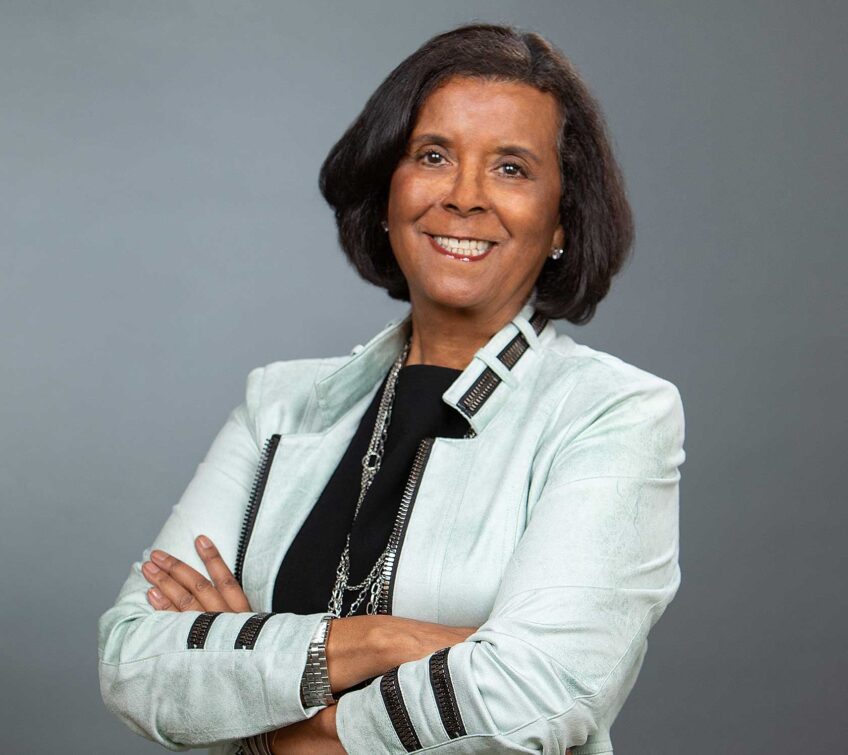Initiative helps build credit
Boston Builds Credit aimed at helping 25,000 Hub residents

The city of Boston’s Office of Financial Empowerment (OFE) last week launched a first-in-the-nation citywide credit building initiative, Boston Builds Credit, aimed at helping at least 25,000 Boston residents attain a credit score of at least 660 by the year 2025 through financial education and one-on-one financial coaching. The program will be launched in Roxbury, and will expand to Dorchester and Mattapan in the following years.
On the Web
For up-to-date information on BBC, please visit www.bostonbuildscredit.org
Find out more about the national Bank On movement at www.cfefund.org/bankon or about Bank On Boston at www.bankonboston.org.
Additional information about the Office of Financial Empowerment may be found at www.ofe.boston.gov
The program is a partnership between the OFE, United Way of Massachusetts Bay and Merrimack Valley, and LISC Boston. The planning process and program development is supported by a grant from Citi Community Development, and funding from Bank of America.
Mayor Martin Walsh announced Boston Builds Credit, and the related program Bank On Boston, at an event welcoming the Cities for Financial Empowerment Coalition conference to Boston. The CFE Coalition is a nonprofit that works to improve the financial stability of low-and-moderate income households through local government. Boston was selected to become a member of the Coalition in 2015.
In Boston, an estimated 100,000 people do not have a credit score, and 136,000 have a poor credit score. These individuals pay higher interest and fees on mortgages, home insurance, car loans, and college financing, causing “expense inequality,” a term used to describe the sustained overpayment of interest and fees on financial products.
A good credit history is a prerequisite for everyday financial products and services such as low-cost credit cards, bank accounts or car loans. Renting an apartment, paying for home insurance, signing up for utilities and even landing a job can also be affected by a person’s credit history, or the absence of one. A good credit score is necessary to attain the tools to access a college degree, buy a home, or start and grow a small business.
BBC’s interim goal is to help 3,000 Bostonians achieve a prime score and/or average credit score increase of 30 points over the next three years.
United Way has convened many of the partners over the past few months, including community-based organizations, employers and financial institutions to develop the initiative and raise funds, as well as provide training to financial coaches in partnership with the Credit Builders Alliance. In addition to its partnership with Boston Builds Credit, United Way this year is also investing over $600,000 in community-based organizations in Boston to support financial coaching and credit-building work.
“We are grateful for the collaboration of so many committed community and funding partners who are participating in this initiative and who will be working with us to promote economic prosperity for all Bostonians,” said Michael K. Durkin, United Way president and chief executive officer.
Action plan
The City and its partners, in collaboration with numerous community partners, have developed the following plan to guide BBC’s implementation:
1.Implement citywide strategies:
- Launch a public education campaign to reach residents with credit building information and tools
- Train credit building specialists to provide services
- Build a network of credit building resources with multiple points of access. BBC is partnering with more than 25 non-profit agencies collectively representing over 100 Boston community-based organizations to implement credit building across the city. Credit building workshops, along with individualized credit building services will be available both directly and through referrals across this network.
- Facilitate access to safe credit products. BBC is partnering with a number of financial institutions to ensure that safe, affordable credit building products are available and that consumers are aware of and have access to these products.
2.Test citywide strategies
in specific neighborhoods
BBC will provide intensive and coordinated outreach to and services for residents living and/or working in particular neighborhoods identified as high need. This place-based strategy will be piloted first in Roxbury where there is need and to take advantage of the Roxbury Center for Financial Empowerment, which already offers free financial coaching. In subsequent years, the place-based strategy will be tested in two additional neighborhoods — Dorchester and Mattapan.
3.Effect systems change
Bolstered by a robust learning and evaluation component, BBC will effect systems change as follows:
- Promote investments imbued with a credit building lens. BBC will seek to build the field by encouraging more grantmakers, municipalities and social investors to increase their investments in programs that integrate credit building to enhance both client and organizational outcomes.
- Replicate in other municipalities. BBC will serve as a national model for other municipalities interested in creating similar city-wide credit building initiatives. To do so, BBC will develop an implementation toolkit that will be available along with training and consulting opportunities to interested municipalities.
- Disrupt predatory practices. BBC will work to disrupt high-cost, predatory practices by promoting the introduction of better products and services into Boston, starting with the three neighborhoods identified for place-based credit building.
- Promote access to accurate, real time, accessible credit education. BBC aspires to open up a dialogue with credit industry stakeholders and to help bridge gaps in understanding, debunk myths, and foster a collective sense of urgency to help set consumers and small businesses up for success.
- Promote consumer protection. BBC will advocate for strong consumer financial protections at both the local and state levels, and contribute where appropriate to federal efforts to educate legislators on issues and initiatives that seek to improve the lives of all Americans.
BBC invites the participation of additional partners — Boston’s community-based organizations, employers, small business owners, financial institutions, the credit industry, funders, residents and others — to join this effort.
Bank On Boston
Walsh also announced the launch of Bank On Boston, a new city-led program to connect residents with reliable, non-predatory financial products and services that can help them save, grow, and access their money.
In Boston, approximately 10 percent of households do not have a checking or savings account, and rely on costly alternative financial services, such as check-cashing and payday loans. Bank On Boston will identify local financial products and services that meet “safe banking” standards, known as Bank On Certified Accounts. Bank On Certified Accounts must be low-cost or no-cost, easy to use, and safe.
Bank On Boston is part of a nationwide movement of Bank On programs led by the Cities for Financial Empowerment (CFE) Fund. Bank On Boston will raise public awareness, expand access to financial education, and help connect residents to other OFE asset building initiatives such as Boston Saves, the Boston Tax Help Coalition, and Boston Builds Credit. The program in Boston is organized by the Mayor’s Office of Financial Empowerment (OFE) and the Mayor’s Office of New Urban Mechanics (MONUM), with the help of local financial institutions, community organizations, and city, state, and federal partner agencies.
Walsh launched the Office of Financial Empowerment in 2014. Its mission is to connect city residents seeking to improve their financial situation with access to asset building programs, financial education and individualized coaching, and income support. By assisting residents to obtain the tools to achieve financial prosperity, economic well-being can become a reality for Bostonians of all ages.
Written by the Mayor’s Press Office






